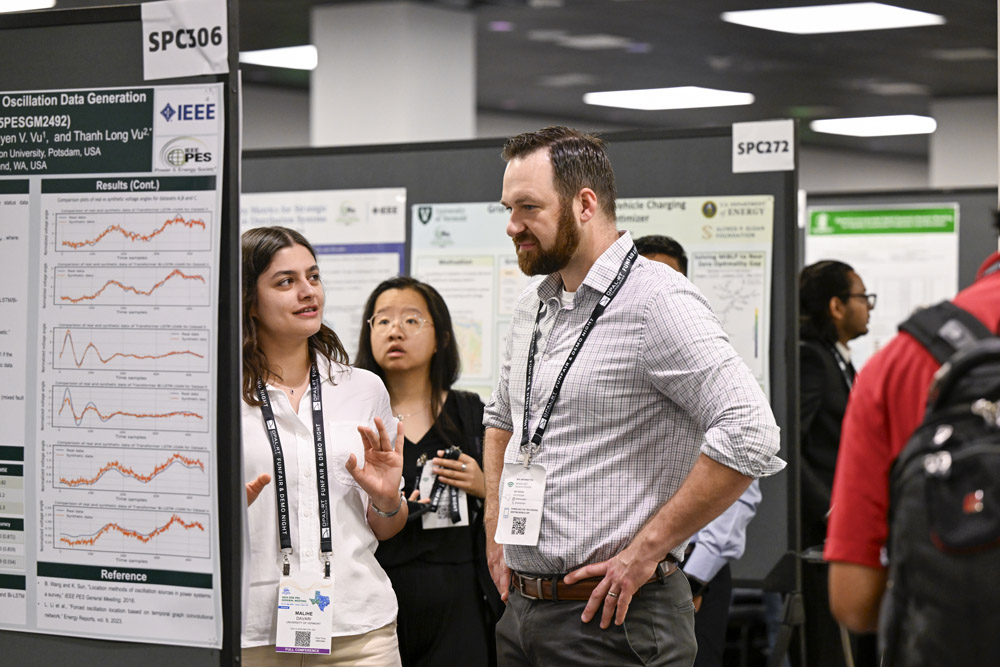Poster Presentation on Modeling Coupled Thermal-Electrical Systems with Savoie Mont Blanc, France
Ph.D. student Malihe Davari attended the IEEE Power & Energy Society General Meeting 2025, held in July 2025 in Austin, USA, where she presented her research as a poster titled “Optimal Design of Coupled District Energy and Microgrid Systems in France’s Bourget-du-Lac District.”

The work was conducted in collaboration with Université Savoie Mont Blanc and focuses on the architectural design of multi-energy systems to enhance self-sufficiency and sustainability at the district level.
For more information on this project, visit this research page.
Participating Authors
Posted
21 Aug 2025
by
Katy
NSF Engineering Research Initiation (ERI)
Dr. Hinkelman has been awarded an NSF Engineering Research Initiation (ERI) project titled Towards Dynamic Life Cycle Assessment of Renewable Energy Hub Systems through the NSF Division of Chemical, Bioengineering, Environmental, and Transport Systems (CBET). This two-year project develops a dynamic co-simulation framework that integrates life cycle assessment (LCA) with multi-physics system modeling to more accurately evaluate the environmental impacts of renewable energy hubs. It also creates an open-source platform and interactive teaching module to support research and education in sustainable energy systems.
See the NSF’s award announcement here.
Posted
20 Jun 2025
by
Katy
Vermont NASA Space Grant
Dr. Hinkelman has been awarded a VTSGC Small-Scale Research Grant on Improving circular design methods and metrics from a life cycle perspective to support NASA’s long-term space exploring systems. In collaboration with NASA Ames Research Center, this project develops advanced graph-based methods and visualization tools to improve circular design methods and metrics for NASA life-support and environmental control systems, supporting engineering design decisions for long-term space exploration.
This research is supported by the Vermont Space Grant Consortium (VTSGC) and Vermont NASA EPSCoR Faculty Research Grant Program.
More information on VTSGC here.
Posted
01 Jun 2025
by
Katy
OVPR EXPRESS
Dr. Hinkelman has been awarded an OVPR EXPRESS Grant for her work on Monitoring Vermont Building and Energy Systems for Ecological and Human Health Impacts. This project advances environmental life cycle assessment (LCA) for healthy green buildings through monitoring and data collection with community partners in the State of Vermont.
Posted
12 Nov 2024
by
Katy